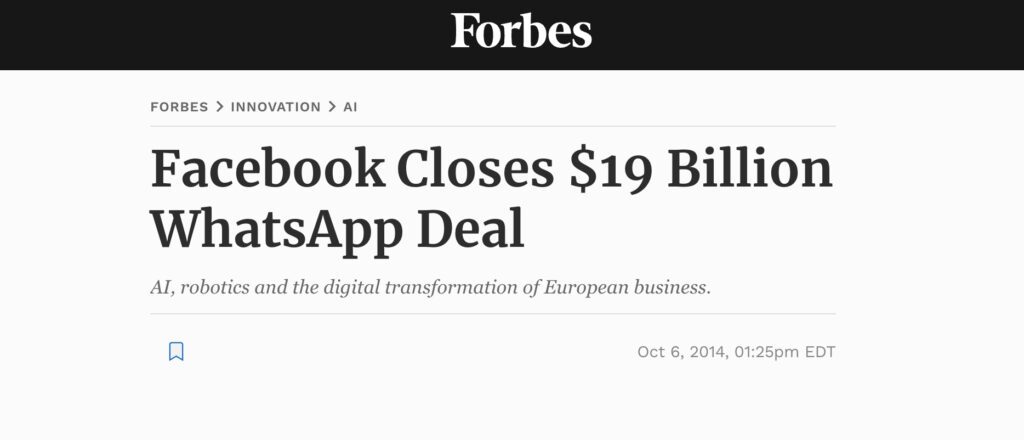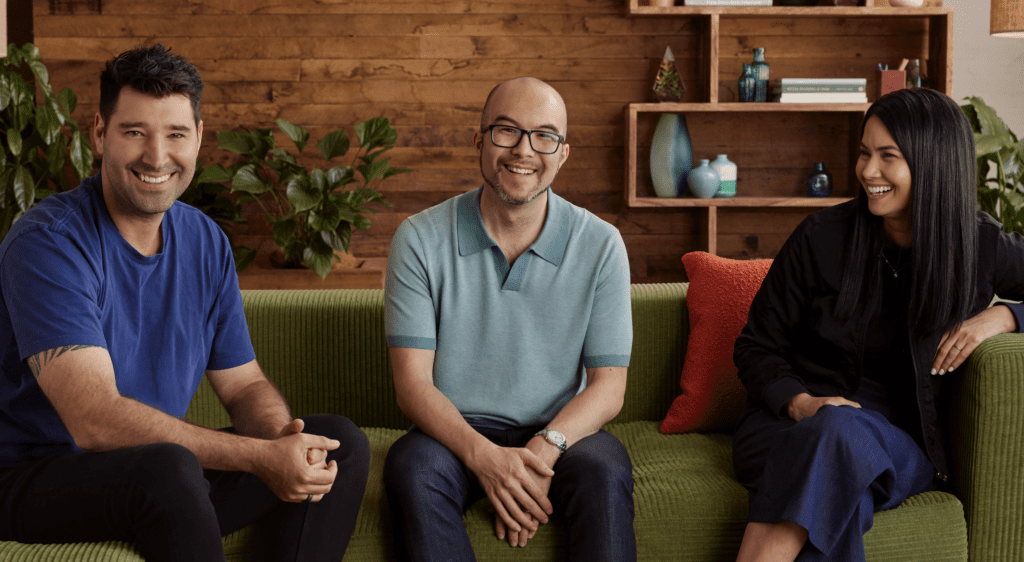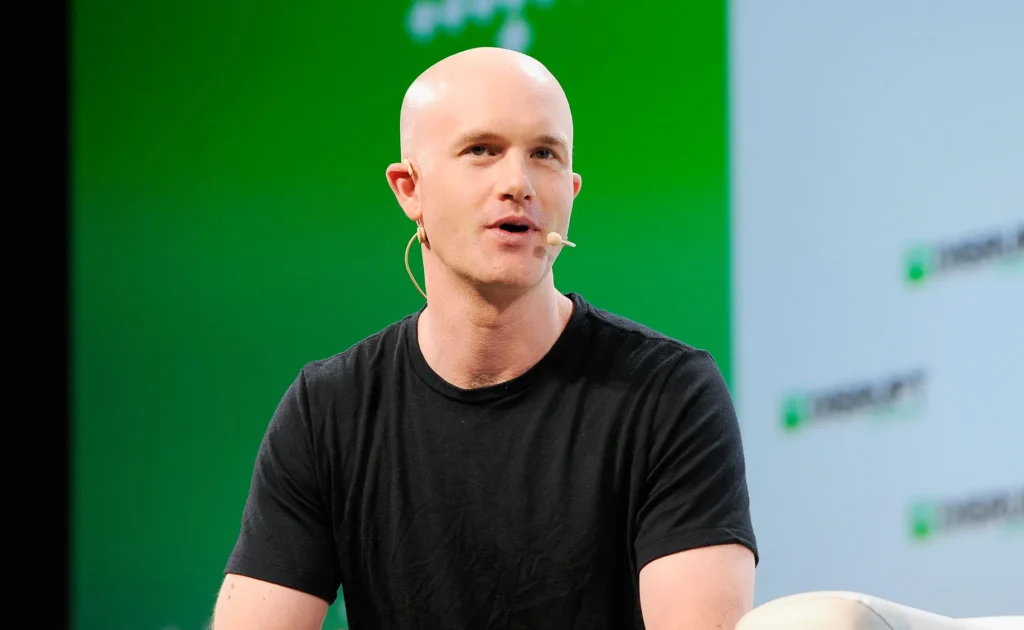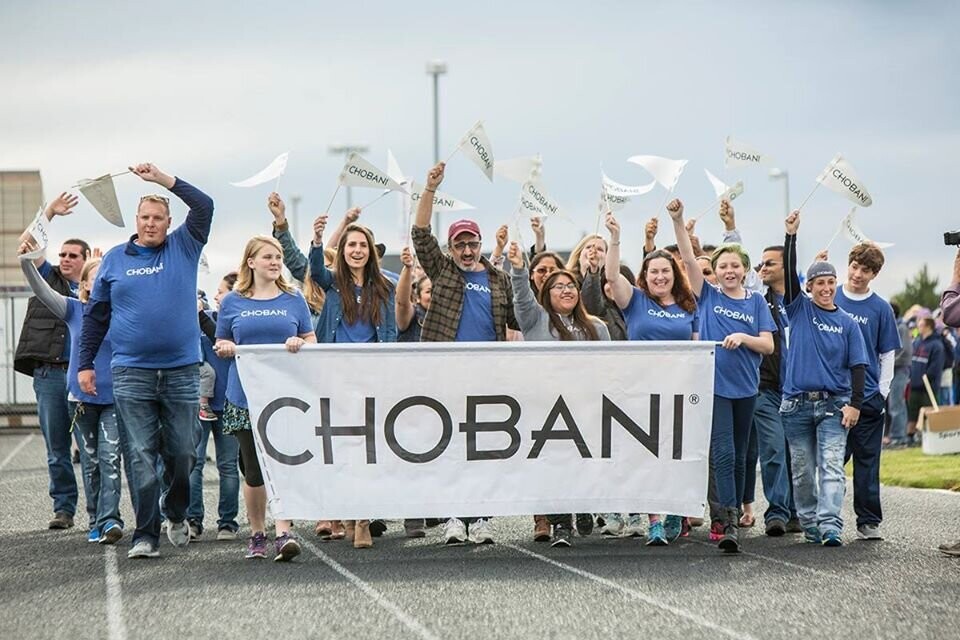Small teams do
BIG things when they're organized
We at Teamhub are inspired by small teams like yours
Inspire and Be Inspired
Incredible wins from small teams like yours
It took just 32 developers to grow Whatsapp to 450m users!
“No ads! No games! No gimmicks!”
A simple principle which helped a small messaging application win over giants like iMessage, WeChat, Facebook Messenger, Snapchat, LINE, Kik Messenger, Kakao-Talk, and many others – while operating with a staff of just 32 developers.

Whatsapp’s history needs to be heard as it is not like any usual startup story where the founders had an idea that made them drop out from their colleges, build a team, and get pre-seed funding from a giant like Facebook or Google.
WhatsApp was conceptualised not by college students but by people who were in their thirties and had a stable job with a renowned company.
Let's streamline your small software development team
All blacks | The New Zealand national rugby union team
The All Blacks, are considered to be one of the greatest performing international teams in history.
Representing a country of just 4.5 million inhabitants, the All Blacks appear to be an untouchable team. They have won the title in 3 World Cups and accomplish a better ratio of wins than other sports teams, making them the foremost sports franchise in history.

In their 125 year long history, the All Blacks have won more than three-quarter of the games they have participated in which is a statistic unsurpassed by any other national sports team. Despite the frequent long periods of time spent away from family whilst touring for matches internationally, the team have a strong determination and drive to achieve a common goal – to win every game and maintain their reputation.
All Black team players, including the coach, are seen as equal and as important components in the creation and maintenance of a successful team.
Time to streamline your tight-knit squad?
Minecraft | A cultural phenomenon
Markus Persson, also known as “Notch,” single-handedly created the initial version of Minecraft in 2009. He developed the game entirely on his own, working from his home in Sweden.
Persson’s vision was to create a sandbox game that allowed players to explore and build in an infinite virtual world. With its simple yet addictive gameplay and pixelated graphics, Minecraft quickly gained a dedicated following among gamers. Despite being a solo developer, Persson actively engaged with the Minecraft community, incorporating player feedback and suggestions into the game’s development.

His transparent and collaborative approach to game development fostered a strong sense of community among Minecraft players, leading to the creation of user-generated content and mods that further enriched the gaming experience. As Minecraft grew in popularity, Persson co-founded Mojang Studios with Carl Manneh and Jakob Porser in 2010 to handle the game’s development and distribution. However, it was Persson’s initial solo efforts and creative vision that laid the foundation for Minecraft’s success and its status as one of the best-selling video games of all time. In 2014, Persson sold Mojang Studios to Microsoft for $2.5 billion, cementing Minecraft’s legacy as a cultural phenomenon.
Ready to optimize the operations of your agile game developer team?
Canva | Simpler and more intuitive way to create designs
When Canva was founded in 2012, it started with a small team of passionate individuals who shared a common vision of democratizing design. Melanie Perkins, Cliff Obrecht, and Cameron Adams embarked on this journey together, leveraging their complementary skills and expertise to bring their vision to life.
As a small team, they faced numerous challenges, including limited resources, competition from established design software, and the daunting task of developing a platform that could cater to the diverse needs of users worldwide. However, their shared passion for design and technology fueled their determination to overcome these challenges and make Canva a reality.
With a laser focus on simplicity, usability, and accessibility, the small team at Canva worked tirelessly to develop the platform, iterating on designs, features, and user feedback. Every member of the team played a critical role in the company’s success, from software engineers coding the platform to designers creating templates and marketing specialists spreading the word about Canva.

Despite the odds stacked against them, the small team at Canva persevered, fueled by their belief in the transformative power of design. Their collaborative and innovative approach to problem-solving enabled them to rapidly iterate and improve the platform, gaining traction among users seeking a simpler and more intuitive way to create designs.
As Canva gained momentum and attracted investors, the small team remained focused on their mission, continually pushing the boundaries of what was possible in design technology. Their relentless dedication and commitment to their vision eventually paid off, propelling Canva into a billion-dollar company with millions of users worldwide.
From its humble beginnings as a small team with a big idea, Canva’s journey is a testament to the transformative impact that a dedicated group of individuals can have in building a successful and impactful company. Their story serves as inspiration for aspiring entrepreneurs and small teams everywhere, demonstrating that with passion, perseverance, and teamwork, anything is possible.
Let's refine the productivity of your small design team
Coinbase | Largest and most well-known cryptocurrency exchange
Coinbase is a fascinating example of a company that started with a small team and grew into a global leader in the cryptocurrency industry.
Founded in 2012 by Brian Armstrong and Fred Ehrsam, Coinbase began with a simple mission: to make buying, selling, and storing cryptocurrencies accessible to everyone. At the time, cryptocurrencies like Bitcoin were still relatively niche and unfamiliar to the general public, and existing exchanges were often complex and difficult to use.
Armstrong and Ehrsam, both with backgrounds in computer science and finance, saw an opportunity to simplify the process of buying and selling cryptocurrencies, making it easier for individuals and businesses to participate in the emerging digital economy.

With just a small team of engineers and designers, Armstrong and Ehrsam set out to build a user-friendly platform that would provide a secure and reliable way for people to trade cryptocurrencies. They focused on creating an intuitive interface, robust security measures, and excellent customer support to differentiate Coinbase from existing exchanges.
Despite facing skepticism and regulatory challenges in the early days of the cryptocurrency industry, Coinbase quickly gained traction among users attracted to its user-friendly platform and transparent approach to compliance. As interest in cryptocurrencies grew, so did Coinbase’s user base and valuation.
Over the years, Coinbase expanded its services to include a wide range of cryptocurrency-related products and services, including a professional trading platform for institutional investors, a wallet for storing digital assets, and educational resources for beginners.
In April 2021, Coinbase went public through a direct listing on the NASDAQ stock exchange, making it one of the first major cryptocurrency companies to be listed on a public stock exchange. The listing was a significant milestone for Coinbase and the cryptocurrency industry as a whole, signaling the growing mainstream acceptance of digital assets.
Today, Coinbase is one of the largest and most well-known cryptocurrency exchanges in the world, serving millions of users in over 100 countries. Its success is a testament to the vision, perseverance, and innovation of its founders and team, who turned a small startup into a global powerhouse in the rapidly evolving world of cryptocurrencies.
Empower your small fintech team to enhance efficiency
Chobani | Working out of a shuttered yogurt factory in NY
Chobani is a remarkable example of a company that started with a small team and transformed into a major player in the food industry.
Founded in 2005 by Hamdi Ulukaya, a Turkish immigrant, Chobani began with a small team of dedicated employees working out of a shuttered yogurt factory in upstate New York. Ulukaya, who had a background in cheese making, was inspired by the lack of high-quality, authentic Greek yogurt options available in the United States. With a passion for yogurt and a vision to bring Greek yogurt to the masses, Ulukaya set out to create a brand that would prioritize quality, taste, and innovation.
Despite having limited resources and no prior experience in the yogurt industry, Ulukaya and his small team worked tirelessly to develop a unique recipe for Greek yogurt that would set Chobani apart from competitors. They focused on using only natural ingredients and traditional yogurt-making techniques, resulting in a product that was thicker, creamier, and more nutritious than other yogurts on the market.

Through innovative marketing strategies, such as sampling events and grassroots outreach, Chobani quickly gained a loyal following among consumers seeking healthier, more satisfying yogurt options. Its distinctive packaging, featuring a simple design and vibrant colors, helped Chobani stand out on store shelves and further fueled its rapid growth.
As demand for Chobani yogurt surged, Ulukaya and his team expanded production, opened new manufacturing facilities, and introduced new product lines, including yogurt drinks, yogurt-based snacks, and non-dairy alternatives. Despite facing challenges and setbacks along the way, including legal disputes with competitors and criticism from industry insiders, Chobani remained committed to its mission of making better food for more people.
Today, Chobani is one of the leading yogurt brands in the United States, valued at billions of dollars, and known for its commitment to quality, innovation, and social responsibility. The company’s success is a testament to the vision, perseverance, and entrepreneurial spirit of its founder and team, who turned a small yogurt startup into a global food powerhouse.
Align your manufacturing team for significant outcomes
Gymshark | From grandmother's garage to billions of dollars
Gymshark’s journey is a remarkable example of how a small team with a big dream can disrupt an entire industry and achieve extraordinary success.
Founded in 2012 by Ben Francis, Gymshark began with just a handful of passionate individuals working tirelessly to revolutionize the fitness apparel industry. Ben, then a teenager, started the company from his grandmother’s garage in the UK, driven by his own frustration with the lack of stylish and functional gym wear available on the market.
Despite having limited resources and no prior experience in the fashion industry, Ben and his small team poured their hearts and souls into creating high-quality, performance-driven activewear that would resonate with fitness enthusiasts like themselves. They focused on innovative designs, cutting-edge fabrics, and a relentless commitment to quality, setting Gymshark apart from traditional sportswear brands.

Through grassroots marketing efforts and strategic partnerships with influencers and athletes, Gymshark quickly gained traction among fitness enthusiasts seeking stylish and functional workout attire. The company’s presence on social media platforms like Instagram and YouTube helped it connect directly with its target audience, fostering a loyal community of supporters and advocates.
As demand for Gymshark’s products surged, Ben and his team expanded their product offerings, introduced new lines of apparel and accessories, and scaled up production to meet growing demand. Despite facing challenges and setbacks along the way, including logistical issues and intense competition in the fitness apparel market, Gymshark remained true to its core values of innovation, authenticity, and inclusivity.
Today, Gymshark is one of the fastest-growing fitness apparel brands globally, valued at billions of dollars. Its success is a testament to the vision, passion, and entrepreneurial spirit of its founder and team. They turned a small startup into a global powerhouse in the fitness industry, inspiring millions of people around the world to lead healthier, more active lifestyles.
Let's master the art of organization within your team
We'd love to feature your small teams wins on this page
What Are Small Team Wins?
Small team wins are those moments of success that might seem insignificant on their own but are significant steps forward for a team. They can be anything from completing a challenging task to overcoming a hurdle in a project timeline, or even fostering a positive team culture.
Why Share Small Wins?
Sharing small wins is essential for building a supportive community, boosting morale, and inspiring others. It reinforces the value of teamwork, dedication, and creativity while encouraging continuous improvement and growth.
How to Share Your Wins?
We invite small teams from all industries and backgrounds to share their victories with us. Whether it's a project milestone, a team achievement, or a personal success story, we want to celebrate with you! Just get in touch and let us know at [email protected]


Testimonials⏺Trustpilot
Trusted by teams in Software Dev.ManufacturingVenture CapitalMarketingLaw FirmsBusiness ServicesAccountancySpaceRoboticsFinance

Munir Usman
CEO Codeinterview.io

Jason Galvez
Dev. Ops.

Philip Butler
Head of Operation
“Our development team loves using Teamhub’s project management tool to manage our projects and track our progress in real-time. It has definitely improved our efficiency.”
“Teamhub has revolutionized the way my team collaborates and communicates. It’s so user-friendly and has all the features we need to keep our client projects on track.”
“We love working with the Teamhub’s Hub. They’ve always been super responsive and open to feedback. Love the fact that time-off and time logging tools are built in to the Hub.”